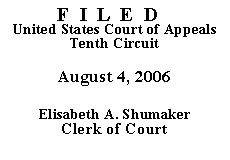

|
UNITED STATES OF AMERICA, |
|
Before LUCERO, HARTZ, and
McCONNELL, Circuit Judges.
On February 26, 2005, Soto-Soto was arrested in Columbus, New Mexico by Border Patrol agents. The agents discovered he was a citizen of Mexico who had been deported from the United States in 1998 after serving a 24-month sentence for felony assault in Washington State.
Soto-Soto entered into a plea agreement and pled guilty to illegal reentry after deportation by an aggravated felon, 8 U.S.C. §§ 1326(1-2), (b)(2), and the Pre-Sentence Report ("PSR") stated that his adjusted offense level was 21, after a three level deduction for acceptance of responsibility. As a result of previous convictions for possession with intent to deliver cocaine, misdemeanor assault, shoplifting, and his felony assault conviction, Soto-Soto's criminal history category was IV. The PSR also noted his prior convictions for criminal trespass, driving with a suspended license, vehicle prowling, and loitering for drug activity, but stated that these did not enhance his criminal history category. Based on an offense level of 21 and a criminal history category of IV, the advisory guideline range is 57 to 71 months' imprisonment.
Although he did not object to the PSR's determination of the proper guideline range, Soto-Soto filed a motion arguing that the district court had the discretion to sentence him below the guidelines range following the Supreme Court's decision in United States v. Booker, 543 U.S. 220 (2005), and that consideration of the sentencing factors in 18 U.S.C. § 3553(a) should lead the court to do so. Specifically, Soto-Soto argued that a sentence within the guidelines range would be improper because: (1) he only came to the United States to see his daughter on the occasion of her quinceñera, a celebration of her fifteenth birthday, and, as such, his illegal reentry was less serious than most efforts to sneak into the country; (2) his deprived childhood, which included sexual and physical abuse, mitigated his criminal behavior; (3) his prior offenses, which included drug dealing and assault, were the result of his addiction to drugs, for which he has since received treatment; and (4) he had previously been in the United States illegally for a long period of time and, thus, he is "an American in every sense of the word, except the narrow legal definition." Counsel described Soto-Soto's story as a "real sad one . . . perhaps the saddest I've come across".
The district court was unimpressed with Soto-Soto's arguments. During the sentencing hearing, the court noted that Soto-Soto had not received any criminal history points for several convictions, including one that was drug related, and that Soto-Soto's guilty plea resulted in a substantially lower sentencing range than he would have received otherwise. Further, it stated that his prior convictions revealed that he had worked as a drug dealer and that this made him less sympathetic than someone who worked in other forms of labor. Finally, it dismissed the importance of Soto-Soto's "sad story," noting that "all of these are sad stories" and that it was "not impressed by the fact that he has had such a bad life. He's had a bad life in part because he was a drug dealer." Despite its lack of sympathy for Soto-Soto, the court sentenced Soto-Soto to 57 months' imprisonment, the bottom of the applicable range.
Soto-Soto now appeals, arguing that the district court's sentence was unreasonable. He argues that the statement by the district court that Soto-Soto has "had a bad life in part because he was a drug dealer" meant that the district court failed to understand his argument as to why a lower sentence should be imposed. Sentences inside the advisory guidelines range are entitled to a presumption of reasonableness. United States v. Kristl, 437 F.3d 1050, 1054 (10th Cir. 2006). "This is a deferential standard that either the defendant or the government may rebut by demonstrating that the sentence is unreasonable when viewed against the other factors delineated in § 3553(a)." Id.
The claim on appeal is nothing short of absurd. The district court directly addressed the mitigating factors raised by Soto-Soto, but simply found that his story was not particularly out of the ordinary. It then went on to note that "part" of the reason for the set-backs Soto-Soto has faced was his decision to sell drugs. This is undeniably true, as he was convicted for possession with intent to deliver cocaine and admitted to a past history of drug-related activities. The district court did not explicitly mention the § 3553(a) factors, but it is clear from the record that, before imposing the sentence, the district court considered the substance of relevant factors, including the history and characteristics of the defendant and the need for the sentence to reflect the seriousness of the offense. As we have stated before, "we will not demand that the district court recite any magic words to show us that it fulfilled its responsibility to be mindful of the factors that Congress has instructed it to consider." United States v. Mares, 441 F.3d 1152, 1161 (10th Cir. 2006) (citations and quotation marks omitted). Sentences within the advisory guideline range are presumptively reasonable and Soto-Soto has not presented any argument sufficient to overcome that presumption.
For the reasons stated above, we AFFIRM the district court's sentencing order.
ENTERED FOR THE COURT
Carlos F. Lucero
Circuit Judge
*. This order and judgment is not binding precedent, except under the doctrines of law of the case, res judicata and collateral estoppel. The court generally disfavors the citation of orders and judgments; nevertheless, an order and judgment may be cited under the terms and conditions of 10th Cir. R. 36.3.